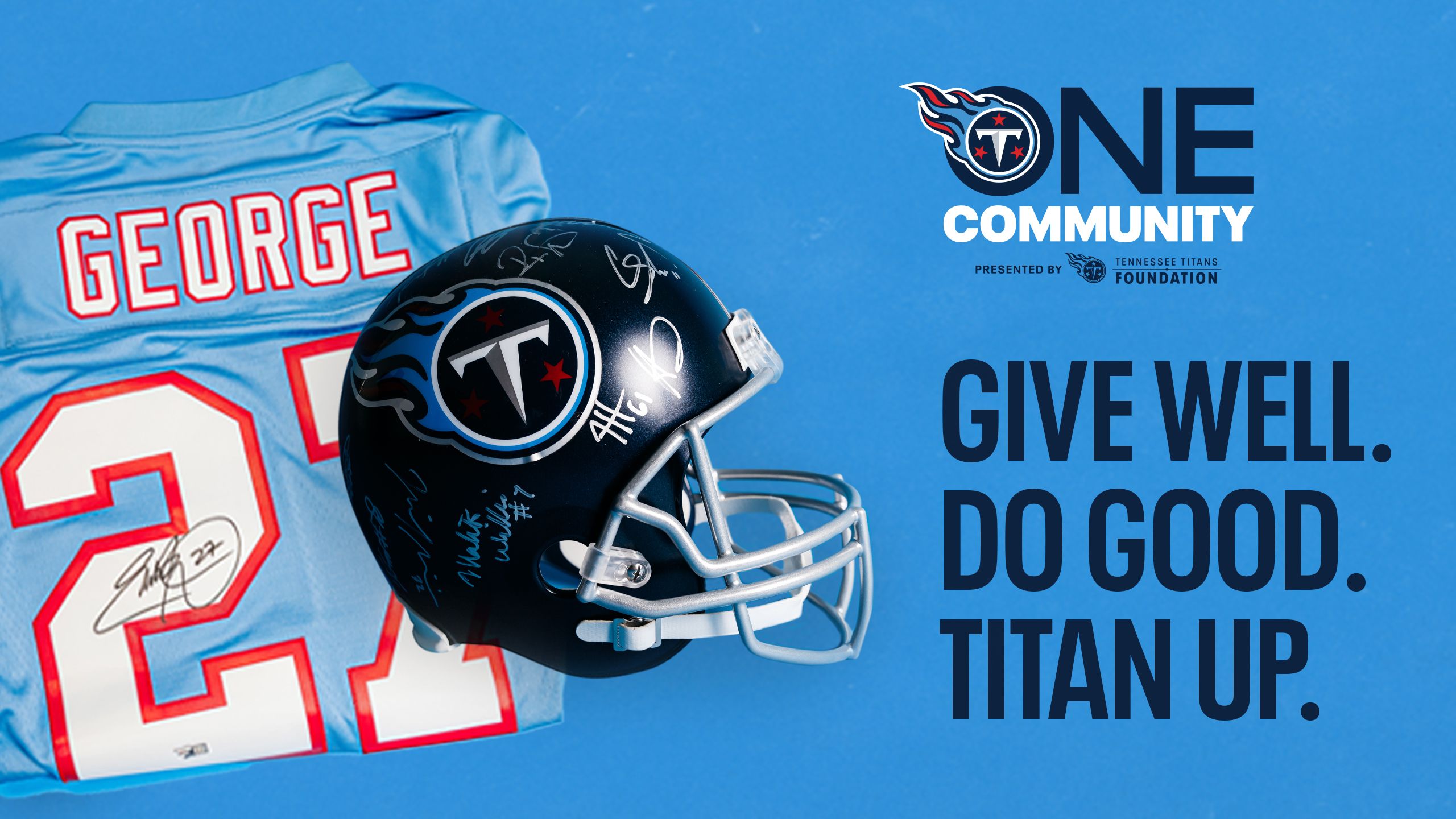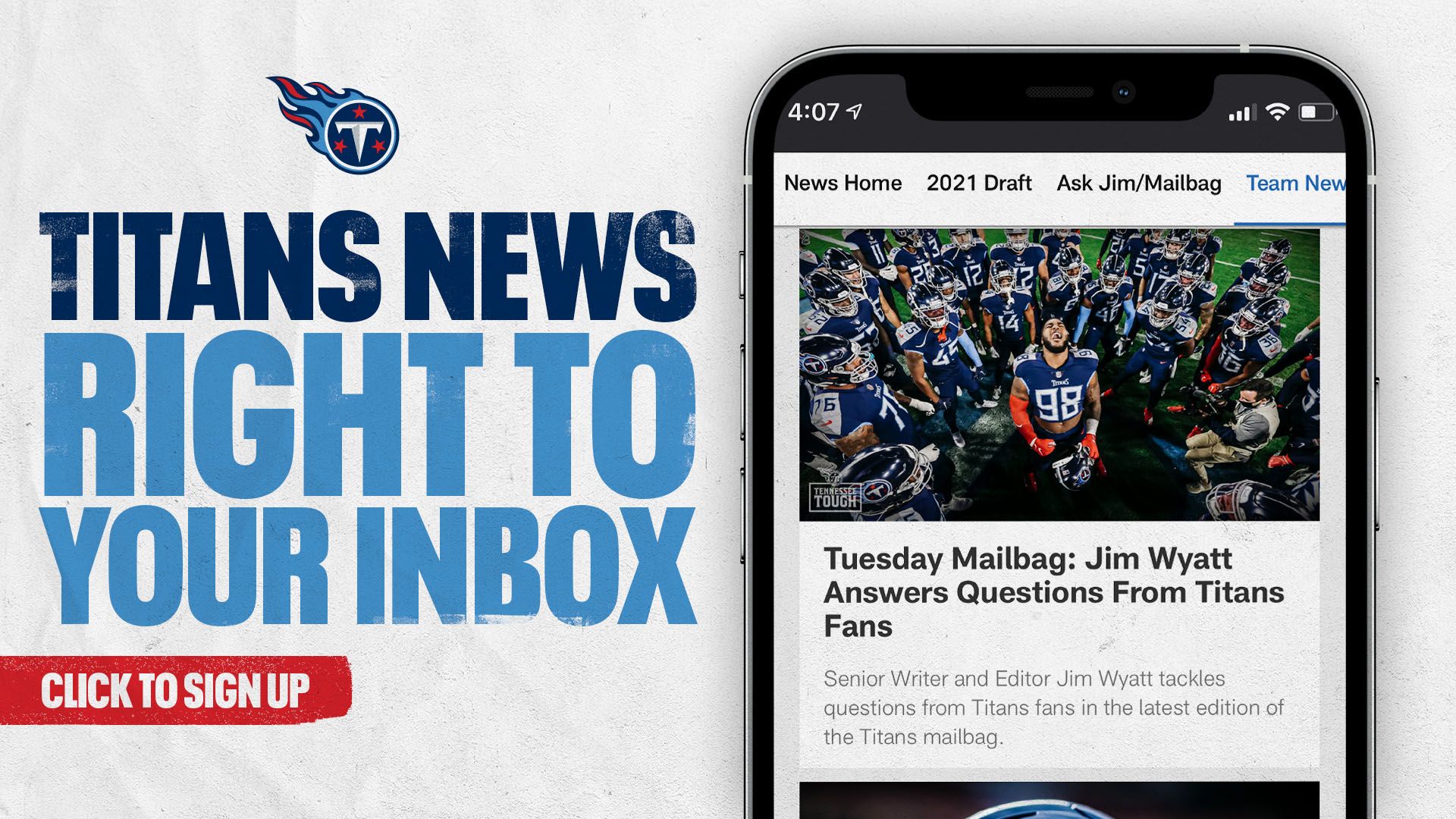**

NASHVILLE, Tenn. --**Tennessee Titans/Oilers founder and owner K.S. "Bud" Adams, Jr. passed away peacefully from natural causes at his home this morning in Houston.
Funeral information will be available in the coming days.
ADAMS BIOGRAPHY
In his 54 years as Founder, Owner, Chairman of the Board, President and CEO of the Titans/Oilers franchise, K.S. "Bud" Adams, Jr. was an enduring figure in the NFL. As one of the original team owners and co-founder of the American Football League, he guided his franchise to new heights since relocating to Nashville in 1997, posting six playoff appearances, including an AFC Championship (1999), AFC Central title (2000), two AFC South titles (2002 & 2008), AFC Championship appearance (2002) and Wild Card teams in 2003 and 2007.
His success and longevity led him to accumulate more wins than any other current NFL owner (409) at the time of his passing. He saw his 400th career win (regular season and playoffs) in the 2011 season finale at Houston as the Titans defeated the Texans. Consistently fielding winning teams, the franchise earned 21 playoff appearances in 53 seasons, a total that ranks eighth among NFL teams since 1960.
A native of Bartlesville, Okla., Adams' interest in sports was first displayed while at Culver Military Academy, where he earned letters in football, basketball and baseball. Upon graduation from Culver in 1940, Adams attended Menlo College (Calif.), lettering in both rugby and football. Adams then transferred to the engineering school at the University of Kansas where he also lettered in football for the Jayhawks. During his days at KU, Adams met his future wife Nancy Neville and began his loyal affiliation with Sigma Chi Fraternity.
In 1942, while still in school at KU, Adams joined the U.S. Naval Reserve. In July 1943, he was called to active duty in the Navy's V-12 college program, which allowed him to continue in school. In early 1944, he received orders to report to Midshipman Officer Specialty School at Notre Dame where he earned his Navy ensign commission in an accelerated 60-day program. He was sent overseas and was assigned to a PAC-Fleet carrier unit, where he served as an aviation engineering officer. He returned to the U.S. in December 1945. Lt. j.g. Adams served as an aide in the U.S. Navy's Congressional Liaison Office in Washington, D.C. prior to his discharge in 1946.
Adams parlayed a 1946 chance stop in Houston, resulting from fog that grounded his plane, into a highly successful and diversified business empire which ranks him among the most prominent businessmen in the country.
In 1946, Adams started ADA Oil Company, which was a forerunner of the publicly-held American Stock Exchange-listed Adams Resources & Energy, Inc. (AE), an energy company engaged in the business of marketing crude oil, natural gas and petroleum products; tank truck transportation of liquid chemicals; and oil and gas exploration and production. Adams' other business interests included extensive farming and ranching in California and Texas, cattle feeding, real estate, automobile dealerships and leasing. He was a longtime collector of Western art and Native American artifacts.
During his early business career, Adams, a year-round sports fan, was an avid sponsor of amateur and AAU teams in basketball and softball. His ADA Oilers were a perennial power in the National Industrial Basketball League in the '50s, capturing third place in the national AAU tournament in 1956. His interest in sports was further evidenced by past ownership participation in professional baseball, basketball and boxing.
Football history was made in Adams' office in Houston on Aug. 3, 1959, where he and Lamar Hunt held a press conference to announce the formation of the new American Football League, which would begin playing in 1960. Hunt would have a team in Dallas, Adams would have a team in Houston, and other teams would be forthcoming.
In his six decades as owner, the hardworking and aggressive Adams made professional football history numerous times. In 1968, Adams' Oilers became the first AFL/NFL team to play its home games indoors by moving into Houston's Astrodome. A team rich in tradition and pride, the Oilers were the dominant team in the American Football League during the 10-year era (1960-69), playing in the championship game four times (1960, 1961, 1962, 1967) - and winning twice consecutively (1960, 1961); earning four AFL Eastern Division Championships (1960, 1961, 1962, 1967); and making the playoffs five years out of 10 (1960, 1961, 1962, 1967, 1969). In 1970, the AFL merged into the expanded NFL, and Adams' teams made the playoffs 16 additional times (1978, 1979, 1980, 1987, 1988, 1989, 1990, 1991, 1992, 1993, 1999, 2000, 2002, 2003, 2007, 2008). In fact, the Oilers' streak of seven consecutive playoff appearances (1987-93) was the longest streak in the NFL during that time span. In 2008, the franchise posted the best record in the NFL (13-3), while capturing its fifth division title and second AFC South crown (2002) after winning the AFC Central division in 1991, 1993 and 2000.
Always fearless in his decisions, Adams consistently made significant moves that have improved his franchise or the league as a whole. Even from the very beginning, he was the man Lamar Hunt approached first when forming the AFL. As the league started, Adams boldly signed players from the NFL (George Blanda) and poached others who chose the AFL over the NFL (Billy Cannon). Through the years, he found ways to acquire Hall of Fame talent – trading for a centerpiece of the defense in Curley Culp in 1974, trading four first-round picks to draft Earl Campbell in 1978, winning a bidding war for CFL star Warren Moon in 1984 and using back-to-back first-round picks in 1982 and '83 to draft Mike Munchak and Bruce Matthews. Adams' franchise also was the first in the AFL/NFL to play their games in an indoor stadium in 1968. His teams also became a platform for diversity as 26 of the team's 54 years have featured an African-American quarterback. Those quarterbacks (Moon, McNair, Young) combined to earn 13 playoff appearances, 11 Pro Bowls, an NFL Co-MVP (McNair, 2003), NFL Offensive Player of the Year honors (Moon, 1990), NFL Rookie of the Year (Young, 2006) and became the first and only African-American quarterback selected to the Pro Football Hall of Fame (Moon, 2006).
The Houston Oilers played their final season in 1996 at the Houston Astrodome. In 1997, Adams led the National Football League into the Mid-South region, the last untapped area without a major professional sport. That feat allowed his team to be the first NFL franchise to call "the Volunteer State" home. During construction of the stadium in Nashville, the Tennessee Oilers played the 1997 season at the Liberty Bowl in Memphis, and the 1998 season at Vanderbilt Stadium in Nashville.
On July 29, 1998, Adams announced that the Oilers' name would be changed beginning with the 1999 season. The Oilers' name was retired by the NFL – a first in league history – allowing the Tennessee franchise to retain the team's winning tradition, and launching a new era in the Mid-South.
The Tennessee Titans made their debut in 1999, in what is now called LP Field. In Greek mythology, Titans were gods of strength and power. The Titan Prometheus brought fire to man, and the new Tennessee Titans brought fire to the football fans in the Mid-South during a very memorable inaugural season, unveiling a new name, stadium, training facility, logo, uniform and colors.
In 15 seasons as the Titans, the franchise won the American Football Conference Championship for the 1999 season (culminating in a trip to Super Bowl XXXIV in Atlanta, where the Titans were defeated by the Rams in one of the most exciting games in Super Bowl history), captured the AFC Central Division Championship (2000) and AFC South Division Championships (2002, 2008), built an enormous home field advantage (71-45 record at home) and the loyalty of millions of fans across the nation and throughout the world. The popularity of the Titans has translated into 150 consecutive sell-outs at LP Field.
During Adams' illustrious career, 67 of his players were Pro Bowl selections, including one AFL Most Valuable Player, two NFL MVP's and five offensive or defensive Rookies of the Year. Also, nine of Adams' players, including Curley Culp this year, were inducted into the Pro Football Hall of Fame in Canton, Ohio. In each of the past eight seasons, Adams was nominated for the Pro Football Hall of Fame as a special contributor. In recognition of the 40th season of the Houston Oilers/Tennessee Titans organization, Adams created an official team Hall of Fame and Ring of Honor that features players and staff from the past, while creating a special place for Titans stars of the future to be recognized.
Adams served on several prominent NFL committees, including the NFL's Finance, Hall of Fame, Legislative and Audit Committees; and was a Trustee for the NFL Trust. Very active in national, state and local programs, Adams is on the Board of Directors of the Cherokee Indian National Historical Society; the Board of Trustees of the Pro Football Hall of Fame in Canton, Ohio; the Board of Directors of the Boy Scouts of America - Sam Houston Area Council; and a Lifetime Director of The Hundred Club in Houston. He is a Governor Emeritus of the Sigma Chi Fraternity Foundation; an Emeritus Trustee of the Culver Educational Foundation; and a Lifetime Director of the Houston Livestock Show and Rodeo. In Tennessee, he was on the Board of Directors of the Middle Tennessee Council of the Boy Scouts of America; was a member of the Nashville Chamber of Commerce; and was on the Board of Trust of the 100 Club of Nashville.
Adams has received numerous awards through the years. In 2012, he was the recipient of the inaugural "Salute to Service" award by the NFL for his work with the military through the years. He also received an honorary Doctorate from Menlo College, where he started his college career.
In 2011, Adams was honored with the Lifetime Humanitarian Award by the T.J. Martell Foundation. In February 2010, he was inducted into the Texas Sports Hall of Fame. In 2008, he was awarded the inaugural Lamar Hunt Award for Professional Football by the Committee of 101. The award honors those of visionary leadership who have helped the NFL reach preeminent status and was given jointly to the "Foolish Club," the original founders of the AFL. Also in 2008, Adams and his wife, Nancy, were inducted into Baptist Hospital's Seton Society for excellence in their profession and service to the hospital. In October 2006, he was inducted into the Menlo College Athletic Hall of Fame. In February 2006, he was inducted into the Tennessee Sports Hall of Fame, becoming the first member of the organization to enter the state hall. In June 2005, he was given the Jack Smith Leadership Award recognizing his West Point Buick dealership in Houston as Dealer of the Year. Tennessee Governor Phil Bredesen appointed him Colonel Aide de Camp for the State of Tennessee in October 2004. The Tennessee General Assembly honored him and the Titans at the State Capitol in March 2001. He was awarded the Community Spirit Award by the Nashville Sports Council at the Third Annual American General Dinner of Champions in February 2001; was honored by the Cherokee National Historical Society at a dinner at the Gilcrease Museum in Tulsa, Okla., in September 2000; was honored at Tennessee State University in August 2000; was the recipient of the Lamar Hunt Outstanding Pro Football Executive Award for the year 2000 from the All-American Football Foundation; and in March 2000, he received the National Multiple Sclerosis Society's Silver Hope Chest Award in Nashville. In 1997, he was honored by Sigma Chi Fraternity with a formal portrait and bust on permanent display in the foyer and museum of their Evanston, Ill., headquarters. He was inducted into Culver Academy's Athletic Hall of Fame in the inaugural class in 1994. In 1991, he was given the Order of Constantine from Sigma Chi, which is the highest honor that fraternity can bestow. In 1990, he was given Sigma Chi Foundation's Semi-Centennial Award.
Other noteworthy honors bestowed upon Adams in the past included the 1988 prestigious "Golden Buckle Award" from the Greater Houston Convention and Visitors Bureau; and the 1987 Distinguished American Award, presented jointly by the Houston Chapter of the National Football Hall of Fame and the Houston Athletic Committee (Chamber of Commerce). He was named 1983 "King Capon" by Bill Williams' Annual Capon Charity Dinner, Inc.; 1981 "Man of the Year" by Culver Military Academy; 1981 "Outstanding Chief Executive Officer" by Financial World Magazine; 1980 "Distinguished Alumnus" by California Community and Junior College Association; 1969 "Westerner of the Year" by the Houston Farm and Ranch Club; 1963 "Significant Sig" by Sigma Chi Fraternity; 1961 "Mr. Sportsman" by the Interfaith Charity Group; and 1960 "Houston Salesman of the Year" by the Houston Sales Association.
Adams and his wife Nancy were married for 62 years before her passing in February of 2009. They raised two daughters, Susie Smith and Amy Hunt, and a son, Kenneth S. Adams III, who is deceased. Adams had seven grandchildren.

















